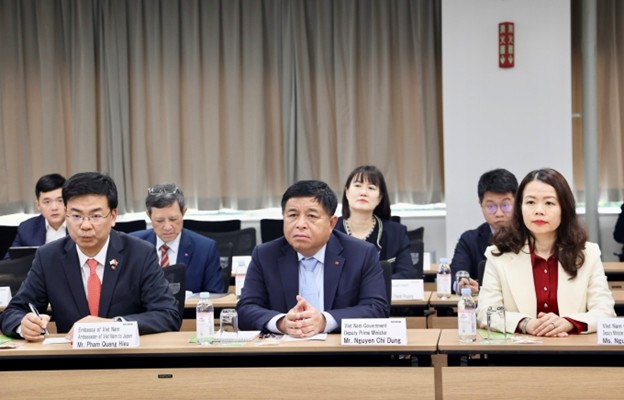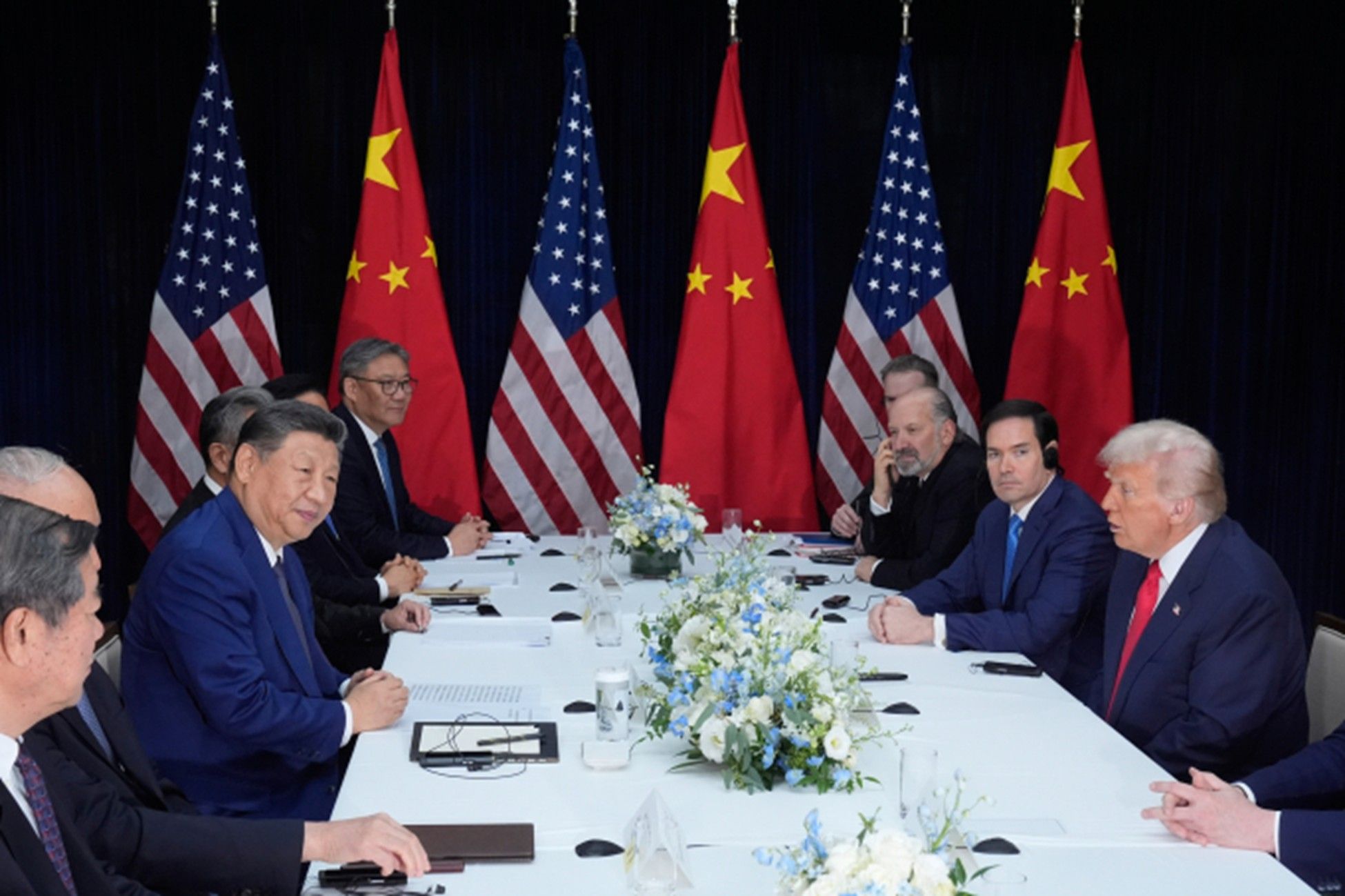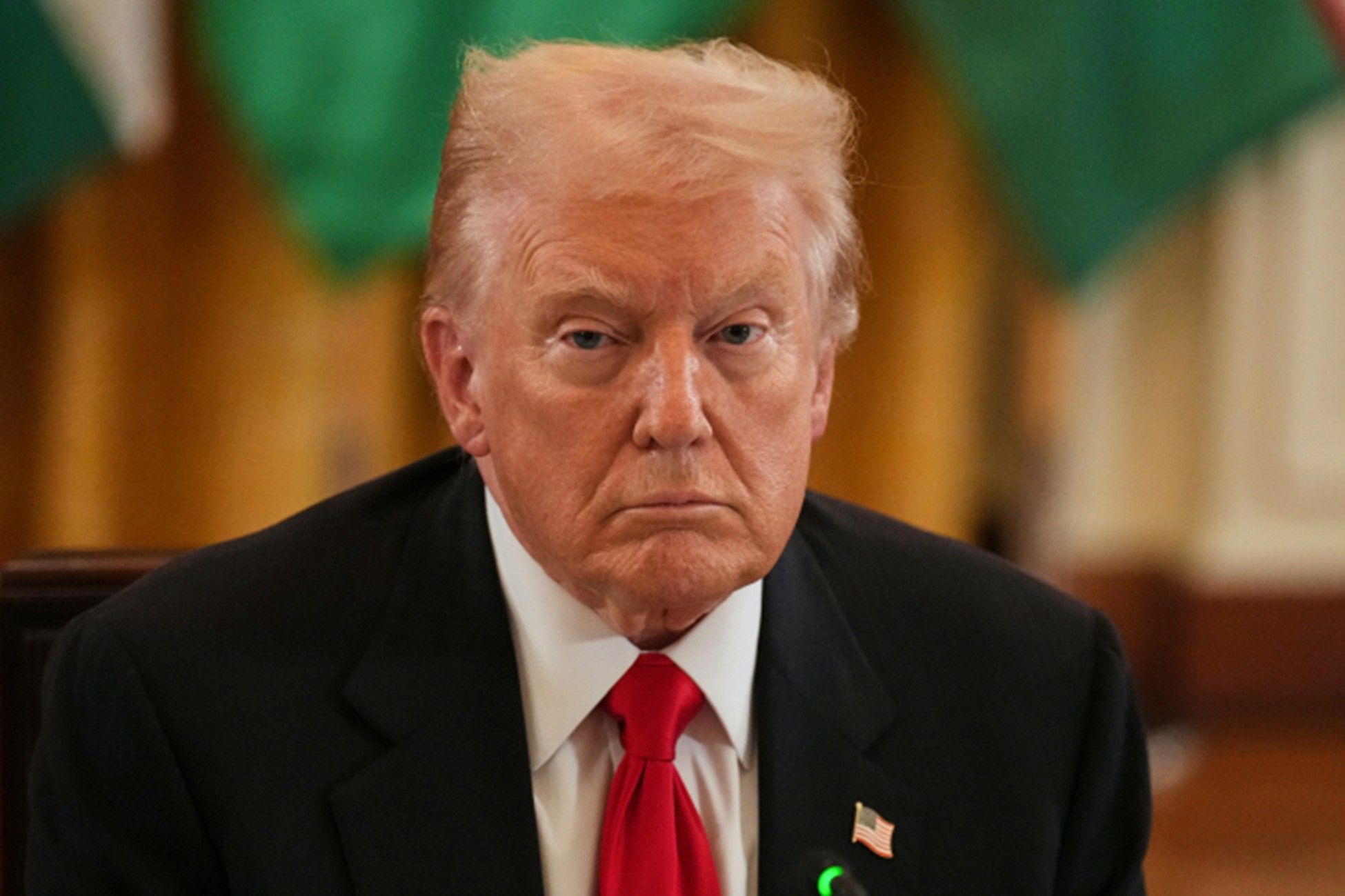Trump's tariffs, US-China trade relations, and a wave of AI investment are among the issues that could shape the global economy in 2026.
Deputy Prime Minister Nguyen Chi Dung said that Kioxia Group should take advantage of the opportunity to soon invest in the semiconductor sector in Vietnam.
During his working trip to attend the 30th Future of Asia Conference in Japan, Deputy Prime Minister Nguyen Chi Dung met with Mr. Wantanbe Tomoharu, Executive Vice President of Kioxia Corporation, on May 27.
The Deputy Prime Minister said that Kioxia's role will be increasingly important in shaping the global digital infrastructure. He suggested that the two sides increase cooperation to open large-scale training centers, build data centers, and research and development (R&D) centers.
The Government leader also proposed that the group coordinate with the Hanoi People's Committee to soon sign a memorandum of understanding (MOU) to realize the investment project to produce AI semiconductor chips at Hoa Lac High-Tech Park.
According to him, Vietnam aims to become a regional semiconductor hub and an important "link" in the semiconductor supply chain. The operator has issued a Semiconductor Industry Development Strategy and is implementing many solutions to develop the semiconductor ecosystem such as establishing an Investment Support Fund, a Project to train 50,000 semiconductor engineers, attracting FDI and promoting public-private and private-private cooperation in stages...
"Vietnam is fully converging to develop the semiconductor industry and Kioxia's choice of Vietnam is an extremely correct decision," the Deputy Prime Minister emphasized

Deputy Prime Minister Nguyen Chi Dung at a meeting with leaders of Kioxia Group on May 27. Photo: VGP
Responding to the Deputy Prime Minister's proposal, Mr. Wantanbe Tomoharu said that Kioxia will research and implement ideas on expanding the reception of Vietnamese engineers, participating in training semiconductor human resources and increasing cooperation with Vietnamese ministries, sectors and enterprises.
Kioxia (formerly Toshiba Memory Corporation), founded in 2018, is Japan's leading memory manufacturer with a market capitalization of approximately $8.1 billion. The group specializes in developing and manufacturing flash memory (NAND) and solid-state drives (SSD) for fields such as cloud computing, smartphones, supercomputers and automobiles.
Kioxia has accepted 50 Vietnamese workers, of whom 9 are working at the factory in Mie Prefecture and 3 engineers are working at the group's research center. Vietnamese workers enjoy good treatment and make positive contributions to the group and the Japanese economy.
The Deputy Prime Minister suggested that Kioxia should establish a database to connect workers who have worked and are working for the group, and support highly qualified Vietnamese engineers who have mastered technology and techniques and want to start a business and participate in the semiconductor supply chain. He also suggested that the group have a cooperation program to train and intern Vietnamese students.
(Source: Vnexpress)
--
Oristar – Leading Metal Supplier in Asia
⚡ Core product lines: Copper, Aluminum, Steel
⚡ Main product grades provided by Oristar: Aluminum alloys, Copper alloys, Aluminum alloy plates, Aluminum coil grades, Tool steel, Special steel: A5052, A6061, A7075, C1100, C2680, C3604, SUS303, SUS304, SKD11, SKD61,...
For product consultation, please contact:
⚡ Hotline: 0988 750 686
⚡ Email: info@oristar.vn
⚡ Zalo OA
⚡ ️Website E-commerce
⚡ Official Website

 VN
VN

 EN
EN
 KR
KR
 JP
JP
 CN
CN



 Economy
Economy


